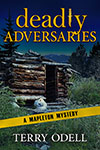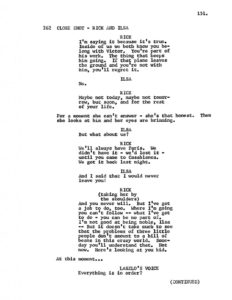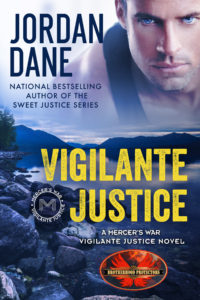Another Social Media Platform. Does it Stack Up?
Terry Odell
 I’m hoping this post will initiate some feedback/discussion, because this writer wants to know.
I’m hoping this post will initiate some feedback/discussion, because this writer wants to know.
Lately, I’ve been seeing a lot about Substack. I know a few of the TKZ authors have accounts, and I’ve followed several other authors I know and admire on the platform. A writing buddy of mine set up her account as a potential substitute for her Blogspot site.
I did a little (very little) digging into the platform. This is what I found from the first link that showed up via the Google Machine.
Substack is much more than a newsletter platform. A Substack is an all-encompassing publication that accommodates text, video, audio, and (sic) video. No tech knowledge is required. Anyone can start a Substack and publish posts directly to subscribers’ inboxes—in email and in the Substack app. Without ads or gatekeepers in the way, you can sustain a direct relationship with your audience and retain full control over your creative work.
Interesting, but is it any different from what I’ve been doing since 2006? I have a blog, Terry’s Place. It’s a WordPress site, and I can include text, video, and audio. I don’t have any ads. I’m my own gatekeeper. Posts go to my site and to subscribers’ email inboxes, and I can also direct anyone and everyone to the site. They can read it without jumping through any hoops.
Is there a cost? Yes, I pay for my domain name and a hosting service. But it’s my domain. My website. And it’s the first thing that comes up when people Google my name. That’s my sandbox, and that’s where I want people to find me.
I also have a newsletter, and yes, I pay for that service. Would it be worth it to switch my newsletter, which goes out about once a month, to Substack’s platform? I’m not sure. I’m an old dog here, and not only do I not like learning new tricks, I firmly believe in “if it ain’t broke, don’t fix it.”
I do have a Facebook page, but most of what I do there is play my “make up your own definitions for the word of the day” game. Posts with more content are my blog posts, which I share from WordPress to Facebook.
One big difference between my WordPress site and Substack is you can monetize Substack. People can pay to read your content. As I understand it, those using that model will offer extras to people who pay. Sort of like Patreon is my guess, but I haven’t investigated either because, frankly, I don’t have the balls to ask people to shell out money for my ramblings. Nor have I paid for any of the subscriptions from the half a dozen authors I follow.
What I’m seeing/thinking is that most of the comparisons are between Substack and Facebook. Yes, I agree that Substack probably has a more reliable reach than Facebook. But I don’t rely on Facebook for serious communication with my followers. That’s what my blog and newsletter are for. I own the emails of my subscribers there.
When poking around the general Substack site, it looks a lot like Facebook or a blog. Users can write articles and readers can leave comments, but they have to subscribe. On my WordPress site, email addresses are required to comment, but they’re private and there’s no subscription/following to comment.
I also looked at the cons of Substack.
Here are a few:
- Substack is separate from your website. While they have a friendly terms of service, they’re still a San Francisco-based company backed by venture capitalists. Nothing would prevent them from changing their terms of service.
- Substack is a company, not a technology. WordPress, on the other hand, is open internet. If your WordPress host kicks you off or goes out of business, you can move to another WordPress host and everything is the same because WordPress is a technology, not a company.
- Substack has no canonical URLs and very limited SEO optimization. It’s not going to guide you into creating search-friendly content.
For more—lots more—you can go to this site, which is where I did much of my research for this post.
I discovered, to my surprise, that I also had a Substack account, but I haven’t done anything with it other than create a draft post just to check the process. It wasn’t complicated, but I’ve had years of experience with my website and blog via WordPress. Will I switch to Substack? Highly unlikely. Will I use it in addition to my blog? Also highly unlikely. As the article points out:
Additionally, if you’re posting to your own blog and Substack simultaneously, you’ll have a duplicate content issue that could hurt the search engine rankings of your primary blog. From an SEO perspective, Substack isn’t great.
And, there’s the added task of finding followers/subscribers. You can’t assume people who follow you in one place are going to jump through the requisite hoops to follow you on Substack. When I was playing around, I got a LOT of emails from Substack, not something I appreciated. If I have an active account and someone follows/subscribes, will they get emails from Substack, too? I wouldn’t want to be the one who triggered that.
From my limited perspective, Substack is just another social media platform that plays by different “rules.” When I log into my Substack account, I see the posts from people I follow at the top, and then below those are posts that look just like the ones on Facebook or Twitter/X. Do I need another social media platform? I think not.
However, I wrote this post today hoping that people who are familiar with Substack will chime in and broaden my understanding. Is it working for you? Are you adding it to what you already do, or using it to replace something that wasn’t working so well? I want to know.
How can he solve crimes if he’s not allowed to investigate?
 Gordon Hepler, Mapleton’s Chief of Police, has his hands full. A murder, followed by several assaults. Are they related to the expansion of the community center? Or could it be the upcoming election? Gordon and mayor wannabe Nelson Manning have never seen eye to eye. Gordon’s frustrations build as the crimes cover numerous jurisdictions, effectively tying his hands.
Gordon Hepler, Mapleton’s Chief of Police, has his hands full. A murder, followed by several assaults. Are they related to the expansion of the community center? Or could it be the upcoming election? Gordon and mayor wannabe Nelson Manning have never seen eye to eye. Gordon’s frustrations build as the crimes cover numerous jurisdictions, effectively tying his hands.
Available now.
 Terry Odell is an award-winning author of Mystery and Romantic Suspense, although she prefers to think of them all as “Mysteries with Relationships.”
Terry Odell is an award-winning author of Mystery and Romantic Suspense, although she prefers to think of them all as “Mysteries with Relationships.”




